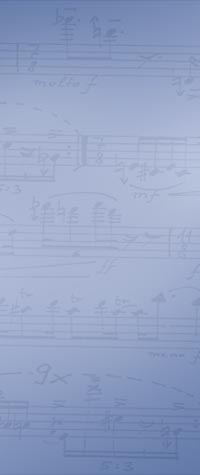
Nagano (2001-3)
opera o třech třetinách a prodloužení
opera in three periods and overtime
opera w trzech tercjach i dogrywce
This operatic fantasy is developed from the true story of the victory of the Czech hockey team at the Olympic Games in Nagano, Japan in 1998.
- Libretto: Jaroslav Dušek & Martin Smolka, using an excerpt from Hašek's "Dobrý voják Švejk" (The Good Soldier Švejk) and a poem by the ancient Chinese poet Shih-te; Libretto - English translation (David Beveridge)
- Language: Czech
- Cast:
- Milan Hnilička - 3rd goalkeeper, guide through the story of the opera: Baritone
- Father Hnilička - at home by his television: Actor
- Mother Hniličková - at home by the television: Actress
- Dominik Hašek (nickname Hašan) - best goalkeeper in the world, a hockey god: Countertenor
- Jaromír Jágr - legendary right wing, 1st player: Tenor
- Růžička - captain of the team, 2nd player, Our forward: Tenor
- 3rd player: Baritone
- Reichl, 4th player: Baritone
- Ručínský, 5th player: Bass
- 6th player: Bass
- Svoboda - defenseman: Tenor
- Russian Head Coach, Jaroslav Hašek, 1st servant: Bass
- Antonio - long-time president of the International Olympic Committee, Russian coach: Baritone
- Canadian forward, 2nd servant: Bass
- Josef Švejk, Cannadian goalkeeper: Baritone
- Spactator, Geisha, Voice: Soprano
- President Václav Havel: Bass
- Scoring:
- Orchestra: 3(2picc),3,3(Es-cl,ten-sx),3(cf) – 4,2(inC,inB),2,1 – 3 perc, arp, el.guit., mandolin – 8,6,4,4,3
- Choir: 8S, 8A, 8T, 8B
- Reciting Choruses
- Dancers
- Duration: 90'
- Commissioned by: Národní Divadlo Praha [National Theater in Prague]
- Premiere: 08.04.2004, Stavovské Divadlo [The Estates Theater], Prague;
- Václav Sibera (Milan Hnilička)
- Bohuslav Maršík (Father Hnilička)
- Lenka Šmídová (Mother Hniličková)
- Jan Mikušek (Dominik Hašek)
- Aleš Briscein (Jaromír Jágr, 1st player)
- Zoltán Korda (Růžička, 2nd player, Our forward)
- Josef Moravec (Svoboda, 3rd player)
- Pavel Novák (Reichl, 4th player)
- Ivo Michl (Ručínský, 5th player)
- Petr Dolejší (6th player)
- Luděk Vele (Coach, Jaroslav Hašek, 1st servant)
- Pavel Červinka (Antonio, Russian coach)
- Zdeněk Plech (Canadian forward, 2nd servant)
- František Zahradníček (Josef Švejk, Cannadian goalkeeper)
- Libuše Vondráčková (Spactator, Geisha, Voice)
- Jiří Uherek (President Václav Havel)
Orchestra, Choir, Ballet of National Theatre in PragueJan Chalupecký - cond.Ondřej Havelka - stage director - Publisher: Národní Divadlo Praha [National Theater in Prague]
- Award: Alfred Radok Prize 2004s
- CD: Nagano - Live recording. Not for sale.
Program Note:
(CZ)
Na první pohled je tu rozpor – ušlechtilý žánr operní, vznešená budova Divadla stavovského a proti tomu hokej – profánní, nejlidovější podívaná, pot, násilí, křik a obhroublost. Jenže naše opera (z potu, pachu a prachu divadelního zákulisí) vynáší i důstojné kořeny sportu a her olympijských, připomíná starořecký ideál kalokagathiá, heroičnost vrcholných výkonů sportovních a rekovnost nejlepších hokejistů světa. A jedním dechem připomíná, že hokej a vše okolo něj je jen hra, že stačí jen trochu posunout zorný úhel a už to lze vidět jako velkou psinu (vždy znovu mě okouzlí můj dvoumetrový soused, který u televize řve mohutným mnohalitrovým hlasem "góóól", a já si za drnčení okenních tabulek představuji, jak se jeho obrazovka pod tím náporem vbouluje dovnitř).
Podobně i hudba opery možná na první poslech zaskočí laika zvukovými příkrostmi ve scénách dramatických a bizarními pazvuky v místech groteskních, nemluvě o operním zpěvu, tak vzdáleném civilní realitě. Odborníku zas nebude dosti umělecká – jedna z prvních reakcí operních pěvců zněla "pěkná písnička" a mezi řádky bylo zřetelně cítit "žádná árie". Ta hudba má ale silný jednotící důvod, jednoznačný cíl – slouží divadlu, slouží celku opery, celé té bláznivé zvučící podívané, která je hrou, iluzí, šalbou a mámením, pohádkou, vábením neskutečna.
Do-re-mi-fa-sol-la-si: snít!
Do-mi-sol-si: smát (se)!
Snění a smích - to bych Vám přál, milí diváci-posluchači.
Martin Smolka
(EN)
At first glance there is a contradiction here - the aristocratic genre of opera, the noble edifice of the Estates Theatre, and against that hockey - a profane spectacle with maximum appeal to the masses, with sweat, violence, yelling, and crudity. However, our opera (from the sweat, stench, and dust of the theatrical backstage) also highlights the dignified roots of sports and the Olympic Games and recalls the ancient Greek ideal of Kalokagathia, the heroism of supreme athletic performances, and the valour of the best hockey players in the world. And in the same breath it reminds us that hockey and everything surrounding it are only a game, that it suffices to shift the angle of view only a little and it can be seen as something very funny. (I am always fascinated anew by my two-metre-high neighbour who roars 'gooooal!!!' at his television in a massive voice of many litres, while I - to the rattling of window panes - imagine how his television screen bows in under this pressure.)
Similarly, at first hearing the music of this opera may take the layperson aback with its aural jaggedness in dramatic scenes and with its bizarre sound effects in grotesque passages - not to mention the operatic singing, so far removed from normal reality. Meanwhile for the professional it will not be sufficiently 'artistic': one of the first reactions of the opera singers was 'no aria'. But this music has a strong unifying reason, an unequivocal goal - it serves theatre and serves the whole of the game, an illusion, a deception and confusion, a fairytale, an enticement of the unreal. Do-re-mi-fa-sol-la-si: dream! Do-re-mi-fa-sol-la-si: laugh! Dreaming and laughter - that is what I wish for you, dear viewers-listeners.
Martin Smolka
Reviews:
Matěj Kratochvíl: Gesamtkunstwerk on ice, in: Czech Music 1/2004, p. 19-20
Anna Šerých: Nagano, čili Hokej v opeře – rok poté, in: Opus Musicum 2/2005
Libretto (English translation - David Beveridge)
Photos - Fotky - Zdjęcia







